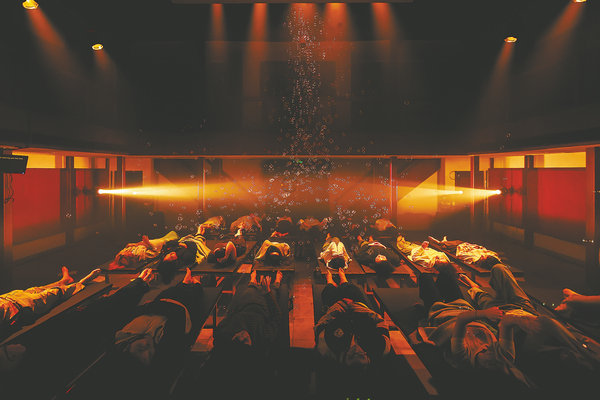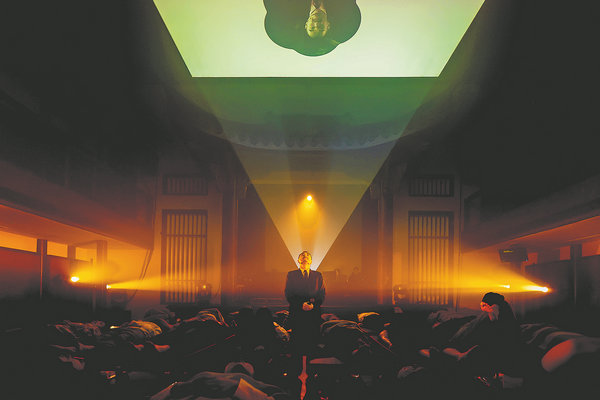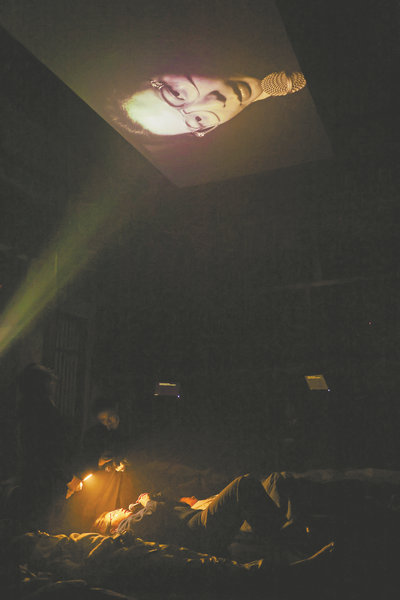

Take off your shoes and socks, lie down on a rollaway bed, and be pushed into a dark chamber by someone in a black suit and white gloves. Don't worry. You're not yet dead. It's only an immersive theater production titled Lying Flat 2.0.
Over 70 minutes, director Wang Chong takes the audience on a journey to a distant place called the Lying-flat Planet. Those familiar with Chinese social media might have heard the term "lying flat", denoting a mindset of desiring and doing the minimum, avoiding social pressures or going with the flow.
From Oct 18-21, Lying Flat 2.0 was performed three times daily with a maximum of 22 audience members at the 11th Wuzhen Theatre Festival.
It offered a rare theater experience, because the audience members were lying down for the entire performance.

The production was highly interactive, from the very beginning when each attendee is asked to write down on a piece of paper the moment they feel most alive, to when the performers point a camera randomly at the audience and ask them profound questions about life and death.
The audience can also communicate with a special performer and co-creator without a physical presence — the artificial intelligence chatbot ChatGPT. It exists on the gigantic screen on the theater's ceiling, yet its presence pervades the show, able to answer any question and uncover the "truth" about the planet.
AI was involved in the entire creative process of the work, according to Wang. Apart from ChatGPT being the co-writer, a performer and translator of the stage subtitles, the theme song and background music blending futuristic sound effects were composed by music creation program Suno AI, and the poster was designed by image generator Midjourney.

"This piece fulfills my ambitions on several levels. First, there's the exploration of AI-assisted creation. And then, there's the subtle connection between AI and the social meaning of 'lying flat'," Wang says.
He believes that, while AI's potential to take over job opportunities is a concern, there is also the possibility of AI liberating human beings from mundane tasks and allowing people to enjoy their lives and fulfill their creative potential.
His experiment with AI first began in 2022, when he attended an artist-in-residence program in Norway and first tried his hands on AI technology. Last year, in Australia, he tried to train AI to play a theatrical role, which provided unsatisfactory results.
"My conversation with AI used to easily trigger canned responses. But this year during our rehearsals, we hardly encountered these, because AI has been upgraded many times and made a world of difference," Wang says.